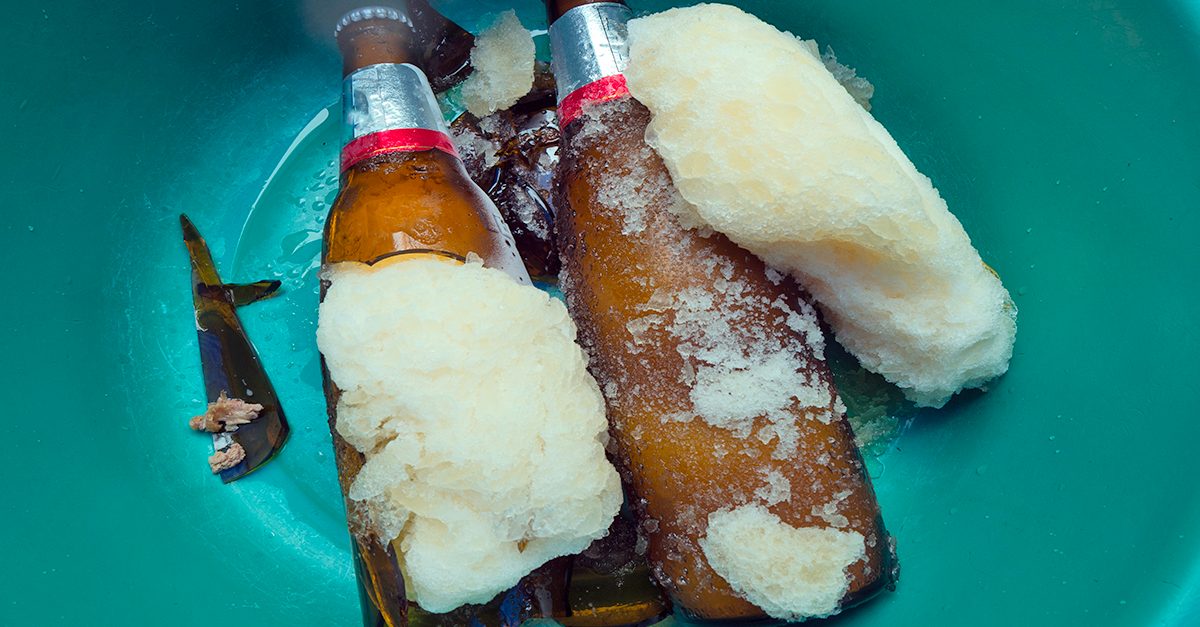Here’s Why Beer Explodes In The Freezer
Beer can get better when chilled in a freezer, but only briefly. Beware of forgetting the beer in the freezer for too long, though, because there will be a mess to clean up come morning. Here’s why.
;Resize,width=742;)
Beers that get left in the freezer for too long can experience burst bottles and ruptured cans. This usually happens due to a build-up of pressure as the water in the beer turns to ice.
Remember that the higher the content of alcohol, the lower the temperature must be to freeze the liquid.
Compared to the amount of alcohol in vodka, most beers range from 4 to 6 percent alcohol by volume (ABV). Beer consists of about 90 to 95% water, depending on the brew, and will freeze at around 28°F (-2.2°C).
Beer also contains sugar, which in some cases can create a slush rather than a frozen block of beer.
What Makes Beer Explode in the Freezer?

It all starts with the water in the brew freezing. When this happens, the volume of the beer expands by approximately 9%. This happens because after the water slowly freezes into ice, water molecules arrange themselves into crystalline structures, taking on a more definite shape.
Water expands as it freezes which means that the beer can or bottle can burst. The beer does not explode in the literal sense, but the cans or bottles may experience fractures, causing the contents to ooze out.
What Happens to Beer After It Is Frozen?

If the drink is broken or the bottle’s cap is absent, it can taste flat due to the lack of carbonation, as carbon dioxide is the “first thing to gas off.” If the beer’s seal is still intact, you can put it back in your fridge and thaw it for later.
Freezing and thawing beer can affect the brew’s quality, flavor, and aroma. It is believed that it may not be the optimal flavor profile intended by the beer brewery after it has been subjected to freezing.
;Resize,width=767;)


;Resize,width=712;)
